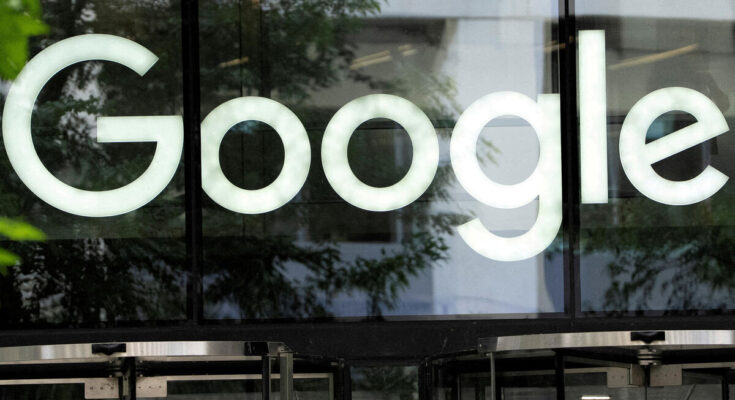The American giant wants to find a compromise with Brussels. Google has proposed measures to the European Union (EU) aimed at avoiding a split in its online advertising activities, following a large fine imposed by Brussels in September for abuse of a dominant position, the American group announced this Friday.
In the so-called “Google Adtech” dossier, the American tech giant has until this week to propose measures to end attacks on business competition, which have resulted in the company being slapped with sanctions totaling 2.95 billion euros.
EU will “analyze actions proposed by Google”
While continuing to oppose the EU decision, which they intend to appeal, Google has ruled out, as the group has always done to date, the most radical solution to restore conditions for fair competition: the sale of all or part of the activities in question, which would effectively result in a split within the group. It now remains to be seen whether Brussels will accept Google’s detailed commitments.
“We will analyze the steps proposed by Google, to examine whether they can put an end” to the condemned practices and the conflicts of interest inherent in its activities, a Commission spokesman said.
Brussels in September voted to impose a fine of nearly three billion euros in sanctions against the group, noting it had abused its dominant position in online advertising, but stopped short of ordering an outright breakup. However, the Commission has not ruled out the need for such action if the group’s commitment to remedy competition violations is inconsistent, and has given Google 60 days to make a proposal.
Google is in Brussels’ crosshairs for its alleged actions in several segments of the online advertising sector. The group offers several services that act as intermediaries between advertisers and websites: AdX, a platform dedicated to buying and selling advertising space, DFP (DoubleClick for Publisher), a service for sites and applications that broadcast advertising, and Google Ads/DV 360, a tool aimed at advertisers.
However, the Commission assessed that DFP, Google Ads and DV 360 abused their dominant position, in particular by prioritizing AdX over their competing platforms.
Google is ready for changes “soon”.
“Our proposal fully responds to the Commission’s decision, without committing annoying divisions, which would harm thousands of advertisers and advertising distributors who use Google tools to develop their activities,” a spokesperson for the American group assured. This combines “immediate” changes to end sanctioned practices, and “significant action” against alleged conflicts of interest by Brussels, the group explained.
US President Donald Trump attacked the EU for a fine imposed in September that he described as “unfair”, but the group is facing similar accusations of abuse of a dominant position by the US government, in a trial currently underway in the United States.
In a hearing in late September before a federal court in Virginia, Google proposed changing its commercial practices, without taking any steps it deemed too radical. Final arguments are scheduled for Monday, and a decision in the American trial is expected in the coming weeks or months.
In another tumultuous antitrust case, this year the group escaped a breakup of its Chrome browser, which the American government had nonetheless requested. In addition, the Commission opened a new investigation into Google this Thursday, in a completely different area, this time suspecting Google of penalizing certain information sites in its search engine results, but the group denies this.



